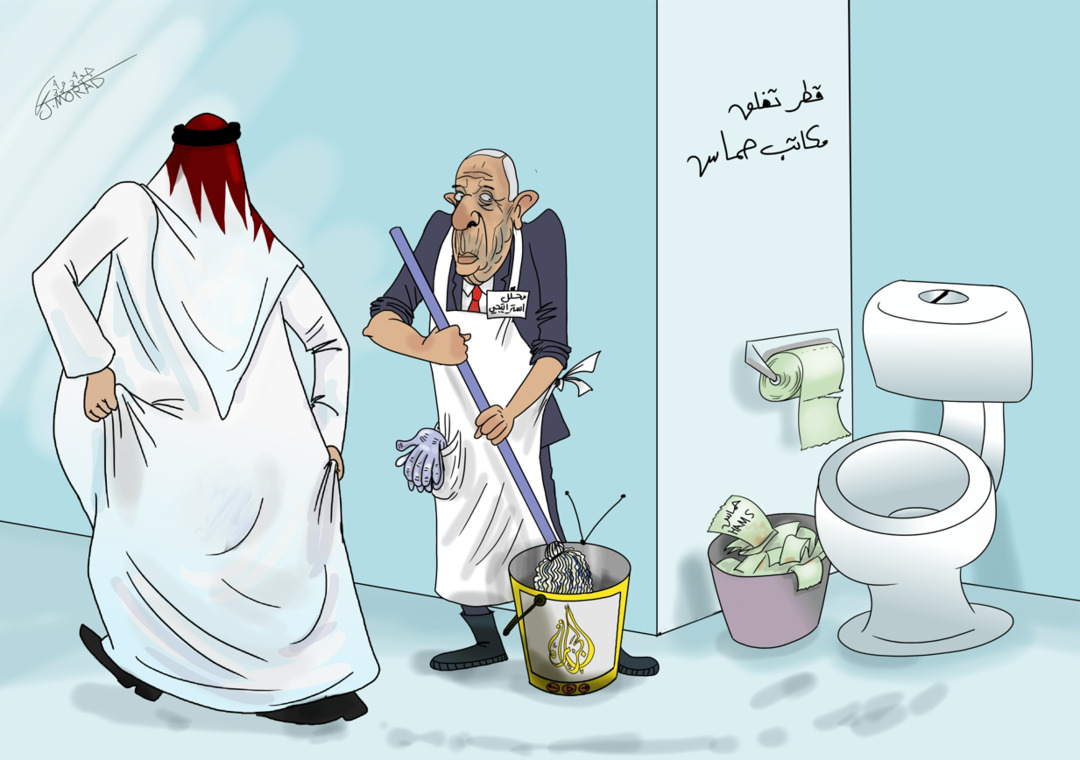-
Sleazy Boris?

It’s been an unusually turbulent few weeks for Boris Johnson, Britain’s larger-than-life Conservative prime minister: the latest controversy about his honesty is who exactly paid for the refurbishment of the apartment he shares above 11 Downing Street with his fiancée Carrie Symonds and the mother of their baby.
Johnson himself has denied doing anything wrong – insisting he forked out “personally” for the redecoration, which mainly involved expensive gold-crested wallpaper. But the Electoral Commission, charged with maintaining standards in public life, announced an investigation into allegations that he acted improperly. That made him look uncharacteristically stressed.
Johnson’s line is that the British public is not remotely interested in who paid for the improvement of his residence, which is next door to No 10. He relentlessly emphasizes the importance of the easing of covid lockdown restrictions in the wake of the highly successful rollout of the vaccination programme - which has now seen over half of the UK’s adult population get their first jabs and over 14 million their second.
But Boris, as the prime minister is widely known, does look rattled. At question time in the House of Commons last Wednesday, he seemed angered by Keir Starmer, the normally uninspiring leader of the Labour opposition, who pressed him on who had made the initial payment for the work on his flat. Starmer also branded him “Major Sleaze” – in retaliation for Boris calling him “Captain Hindsight.”
Starmer said that voters would be screaming at their televisions in exasperation at Johnson refusing to directly answer his questions, adding that the Conservatives had been revealed to be handing out “dodgy contracts”, “jobs for their mates” and “cash for access”. The Labour leader was later filmed inspecting wallpaper in John Lewis, a well-known department store: one newspaper headlined a critical column: “Décor without Decorum”.
But that is not the only issue Boris is grappling with. Even worse, arguably, are multiple media reports that last autumn, when internal government arguments were raging about the urgent need for a new England-wide lockdown, the prime minister said: “Let the bodies pile high in their thousands.” Opposition spokesmen condemned Johnson’s alleged remarks as “sickening, disgusting, crass, and wrong.”
It is widely suspected that one of the sources of this damaging quote is Dominic Cummings, the former chief adviser to the prime minister, who wrote on his blog (about the Downing Street refurbishment) that “plans to have donors secretly pay for the renovation were unethical, foolish, possibly illegal and almost certainly broke the rules”.
Cummings, himself no stranger to controversy, is due to appear later this month before a House of Commons panel examining the government’s handling of the pandemic. Officials fear more revelations from Boris’s onetime ally, who has promised to answer questions “for as long as MPs want.”
Johnson and the Conservatives are also facing wider allegations of cronyism following months of revelations about the lobbying of ministers by the now insolvent lender Greensill Capital, aided by former Tory Prime Minister David Cameron, an adviser to the firm.
And Boris himself, more recently was accused of promising to “fix it” for the billionaire vacuum-maker Sir James Dyson, who texted the prime minister over tax rates for his employees working on ventilators urgently needed to cope with coronavirus last year. Questions then were asked about exactly who had Johnson’s personal phone number: the answer, as it turned out, was that it was publicly available!
Most opinion polls still give the Tories a significant advantage over Labour, but there is no doubt that the recent spate of negative news stories has distracted attention from the UK government’s belated vaccine success – after registering Europe’s (and one of the world’s) highest covid death toll.
Johnson continues to benefit from his large majority in the 2019 general election, in which he campaigned famously to “get Brexit done.” But there is starting to be serious unease about his habit of generating scandals that would have ended the career of other politicians, especially regarding the broader relationship between government and business.
Max Hastings, who was the editor of the Daily Telegraph, when the young Boris was the newspaper’s Brussels correspondent, lambasted the prime minister in an article published shortly before he succeeded Theresa May as party leader: “There is room for debate about whether he is a scoundrel or mere rogue, but not much about his moral bankruptcy, rooted in a contempt for truth,” he wrote. Hastings memorably characterised Boris as a “cavorting charlatan”.
Some people worry that criticism of Johnson over these recent rows serves to mask the damage that Brexit has done: making the UK poorer by leaving the EU – the world’s most successful single market - while exaggerating the weight of what he calls “Global Britain”; promoting Scottish independence and Welsh nationalism and endangering peace in Northern Ireland.
Clearly there are large sections of the British public who don’t really care about allegations of Boris’s sleaze and his sense of arrogant entitlement. If so maybe he will get off the hook and survive the latest crisis over the redecoration of his flat. But the Brexit disaster will remain his enduring legacy.
by: IAN BLACK

You May Also Like
Popular Posts
Caricature
Qatar Closes Hamas Office...
- November 11, 2024

Qatar Closes Hamas Offices
opinion
Report
ads
Newsletter
Subscribe to our mailing list to get the new updates!



















